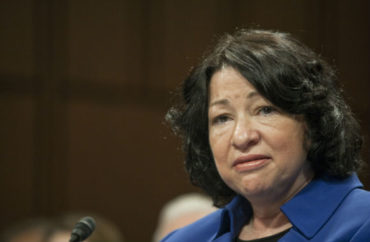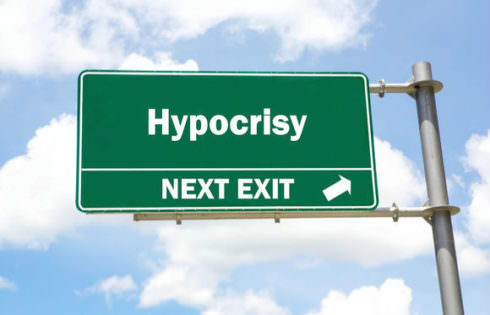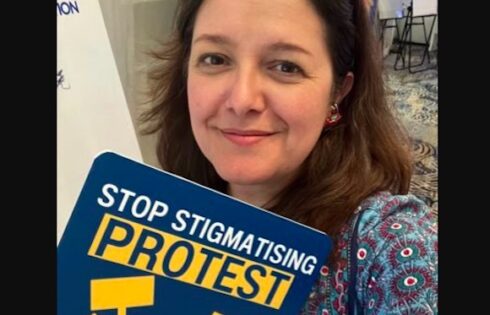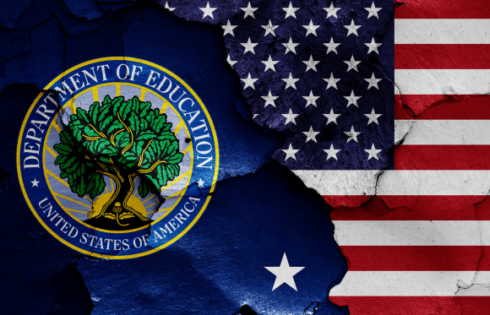
Liberal justice gets a bigger venue – and a cheaper security fee – than Ben Shapiro
The Berkeley College Republicans didn’t get everything they wanted, but the University of California-Berkeley still has to answer to a federal judge for its imposition of wildly different security fees against invited liberal and conservative speakers.
U.S. District Judge Maxine Chesney gave the green light to the BCRs and the Young America’s Foundation to continue pursuing some claims against the university for policies it imposed that regulate how and when speakers can visit campus.
They sued a year ago after UC-Berkeley refused to let conservative provocateur Ann Coulter speak on the originally agreed upon date and venue, and forced another conservative provocateur, David Horowitz, to speak at an undesirable time and place. The suit was later amended to include restrictions placed on invited conservative pundit Ben Shapiro.
The plaintiffs claimed the university was “enforcing a recently adopted, unwritten and unpublished policy” that gives officials “unfettered discretion” to dictate how and where conservative groups can host events with “high-profile speakers.” The Shapiro allegations concern a newly written “major events policy.”
MORE: BCRs sue UC-Berkeley for rules designed to censor their speakers
In her ruling late Wednesday, Chesney said the controlling 9th U.S. Circuit Court of Appeals “has permitted facial challenges based solely on time, place, and manner restrictions, at least where the challenged provision has, in practice, been enforced ‘as though it authorize[d] denying permits.'”
That rejects the university’s claim – first raised at a hearing two months ago – that the plaintiffs can’t mount an “unbridled discretion” challenge because the university policy only imposes time, place and manner restrictions:
As discussed above, plaintiffs allege in the [first amended complaint] that the [high-profile speaker policy] includes no standards, either through the policy’s terms or its history of enforcement, to limit any implementing officials’ discretion; as plaintiffs further point out, the HPSP provides, for example, no standard for determining what events fall under the policy, at what locations events may be held, and what, if any, security fee may be imposed. Such allegations are sufficient to plead a facial challenge based on unbridled discretion.
She therefore approved the facial challenge to the high-profile speaker policy to move forward.
Discrimination based on ‘safety,’ not viewpoint
Chesney wasn’t convinced, though, that the “major events policy” used against Shapiro was “not sufficiently definite to limit the University’s discretion” in designating an event as “major” and subject to restrictions.
While she “questioned the constitutionality” of one provision that defines a “major event” in relation to its “complexity,” that claim is now moot because the university revised the “complexity” provision in January, the judge said.
Chesney next said the university didn’t discriminate against the invited speakers “because of” their viewpoint, but rather because of “safety concerns” that had previously led the university to assign a Holocaust denier to a “small, really out-of-the-way room” in the 1990s.
The various statements of university officials cited by the plaintiffs as evidence of discrimination, according to Chesney, actually “reflect a not unfounded concern for safety, as well as a need for flexibility in responding to any potential disruption occurring at the time of the Shapiro event.”
The judge continued to make a distinction between viewpoint and safety, saying that another conservative provocateur, Milo Yiannopoulous, had obtained “all necessary approval” to speak on campus “before violence spurred an increased concern for security.”
‘Similarly situated’ events, drastically different security fees
But Chesney found a discrepancy in the university’s issuance of drastically different security fees for speakers of opposing viewpoints.
Beyond the $5,788 fee imposed for the Horowitz event under the high-profile speaker policy, whose challenge Chesney already approved, the university tried to charge three times more for security for the Shapiro event ($15,738) than for an event with liberal Supreme Court Justice Sonia Sotomayor ($5,000), in the same venue.
When the plaintiffs agreed to close off the balcony to the Shapiro event, reducing its capacity by nearly half, Shapiro was still charged 83 percent more than for the Sotomayor event, which still included the balcony.
“In the absence of a pleaded explanation for any of the fees imposed, and where, as here, an explanation is not otherwise apparent, such allegations suffice to support an as-applied challenge” to the major event policy, Chesney ruled:
Accordingly … to the extent plaintiffs’ First Claim for Relief asserts an as-applied challenge predicated on the alleged unreasonableness of the restrictions imposed, the claim is not subject to dismissal.
MORE: Coulter pulls out of UC-Berkeley speech: ‘Free speech crushed by thugs’
The plaintiffs’ First Amendment retaliation claims and due process claims for the major events policy were deemed groundless because the university acted on the basis of safety and Shapiro’s event qualified as “major” under a definite criterion, that its expected attendance was more than 200 people.
But Chesney approved the due process claims for the high-profile speaker policy because it is “wholly lacking in standards to guide enforcement,” and the equal protection claims because the security fees were drastically different between the “similarly situated” Shapiro and Sotomayor events.
The defendants will receive qualified immunity for their actions regarding the original “complexity” provision in the major events policy, the judge ruled, because “its wording is not so deficient that ‘every reasonable official would have understood’ it to be unconstitutional.” She also refused to grant punitive damages because the plaintiffs haven’t shown university officials “were motivated by viewpoint discrimination or retaliatory animus.”
Chesney said she won’t yet decide about qualified immunity on other issues “in light of unresolved factual issues pertaining to defendants’ stated security concerns.”
UC-Berkeley says it spent $800,000 to protect Shapiro
The Young America’s Foundation celebrated the partial win in an email blast:
This ruling allowing YAF’s critical First Amendment case to move forward is a win for conservatives and free speech, and it shows that Judge Chesney believes there is significant evidence of Berkeley’s work to suppress conservative speech.
Conservative students will finally have their day in court, and we are confident that the outcome of this case will be the restoration of students’ First Amendment rights at the University of California, Berkeley.
UC-Berkeley spokesperson Dan Mogulof told Courthouse News Service it was “pleased” that Chesney “upheld” the major events policy, and he claimed that Chesney’s ruling “does not conclude” that the university charged too much in security fees for the Shapiro event. He said the university itself paid for more than $800,000 in security for that event.
But he disputed that its high-profile speaker policy, the big loser in Chesney’s ruling, was a “secret policy.”
Courthouse News Service noted that some of Chesney’s findings were previewed in February’s hearing. She had said UC-Berkeley “can obviously put in restrictions” in the face of predicted violence, but questioned “who back there in the legal office” came up with the “complexity” provision in the original version of the major events policy.
MORE: UC-Berkeley forces Shapiro hosts to pay $15,000 for police that ‘forego arrests’
IMAGE: K2 images/Shutterstock
Like The College Fix on Facebook / Follow us on Twitter






Please join the conversation about our stories on Facebook, Twitter, Instagram, Reddit, MeWe, Rumble, Gab, Minds and Gettr.